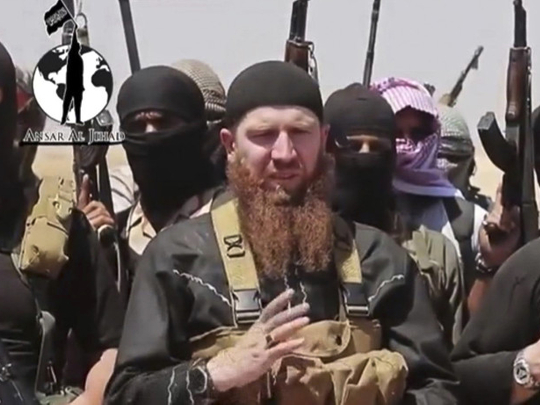
What happened to Iraq since the 2002 America-led invasion, and is happening to that country and its people for the past few weeks, has led a growing number of commentators to wonder: Did the US make a serious mistake in trying to impose, through force, its own vision of the world in the Middle East?
Looking at the Iraq war — the number of casualties from which is still not clear — its huge material and moral costs, daily attacks against civilians, the economic disaster and corruption and political instability, there is no doubt the US intervention was ill-conceived. It looks obvious today, but not everybody would have agreed 12 years ago, even though it was repeatedly said. When one adds the spectacular progress made by the Islamic State of Iraq and the Levant (Isil) in the past few weeks, the emergence of a jihadist, Taliban-type set-up across eastern Syria and western Iraq, the break-up of the former Iraq and a strengthened Syrian President Bashar Al Assad, one can have further reservations about American foreign policy.
Then, some US politicians start wondering whether America should give Iran a hand so that Tehran can help Iraqi Prime Minister Nouri Al Maliki hold on to power. Some others openly discuss the wisdom of the ‘all-but-Al Bashar’ attitude in destroyed Syria. Some wiser than other Gulf Cooperation Council states raise the question of the validity of a foreign policy that results in generously donating arms and money to ‘Islamist fighters’ from all over the world. The only ones that are not to be heard are the Europeans and that is not only because they are saying nothing. France, whose voice is inaudible and has limited its actions to closing its embassy in Syria, suggested bombing Damascus and felt betrayed when US President Barack Obama for once acted carefully.
It is surprising how comments are made these days, notably in Europe, about the ‘American failure’ in the Middle East; how ‘specialists’ explain the differences between Al Qaida and Jabhat Al Nusra, Salafists and other jihadists — without taking the pain to explain how porous these groups may be. There are those who want a religious caliphate and those who just want political power; those who take money from Saudi Arabia and those from Qatar. Commentators express opinions about ‘Baghdad which is going to fall’ (I doubt it will fall entirely) or how Turkey has been able to manipulate Isil and come back into the picture after an erroneous earlier policy of supporting the Muslim Brotherhood-linked Syrian ‘Islamic Front’ and so on.
Yet, one may also get tired by these smart comments which, however, miss the point: A policy must be judged based on its final result and in that case, there is no doubt the winner is — America! And, of course, Israel, which in the region means one and the same. The reason for this was already clearly detailed in a 1982 document written by Odded Ynon: A safe future for Israel is one in which there is an absence of any strong Arab state around it. And what America has done in the region for the past 10 years has been an effort in that direction.
The first state to be destroyed was Iraq, a natural stronghold for centuries against possible Persian expansion. The second was Syria — incidentally, another secular state for democracy-loving Americans who seem to prefer the religious political style of some Arab states. Attacking Syria from outside was not that easy, given the Iraqi precedent. So what? Some regional allies would give a hand. As for Egypt, Mohammad Mursi and the Muslim Brotherhood were the natural choice, until incompetence and corruption hit such levels that America had to backtrack.
What is the scene now? Destruction of Iraq and Syria, with the expected creation of smaller states — Kurdistan, “Druzistan”, “Allawistan” — and a revamped and boosted relationship with Iran on the grounds of a tactical alliance with the US, made necessary by the need to prevent Iraq from collapsing further. Incidentally, this may enable the Iranians to keep their atomic bomb in the deal. Turkey will be back in the saddle and surrounded by an odd coalition of Iranians, Israelis and Turks, Arab populations will be looking at their devastated countries.
One may ratiocinate for years if such results were due to a well-defined US foreign policy or they just came by chance. Actually, it matters little as the results are there: Large Arab nation states have collapsed; ethnic entities are emerging; religious extremism is spreading with resultant political instability; the Sunni-Shiite divide is now deeply entrenched; there are time-bombs waiting to go off, notably in Lebanon; the dream of an independent Palestinian state is more remote than ever and an even better-secured Israel feels free to jail veteran politician Aziz Dweik when three young Israeli colonists are abducted and later killed. (Who benefits from the crime?)
Well done, America!
Luc Debieuvre is a French essayist and a lecturer at IRIS (Institut de Relations Internationales et Strategiques) and the FACO Law University of Paris.








